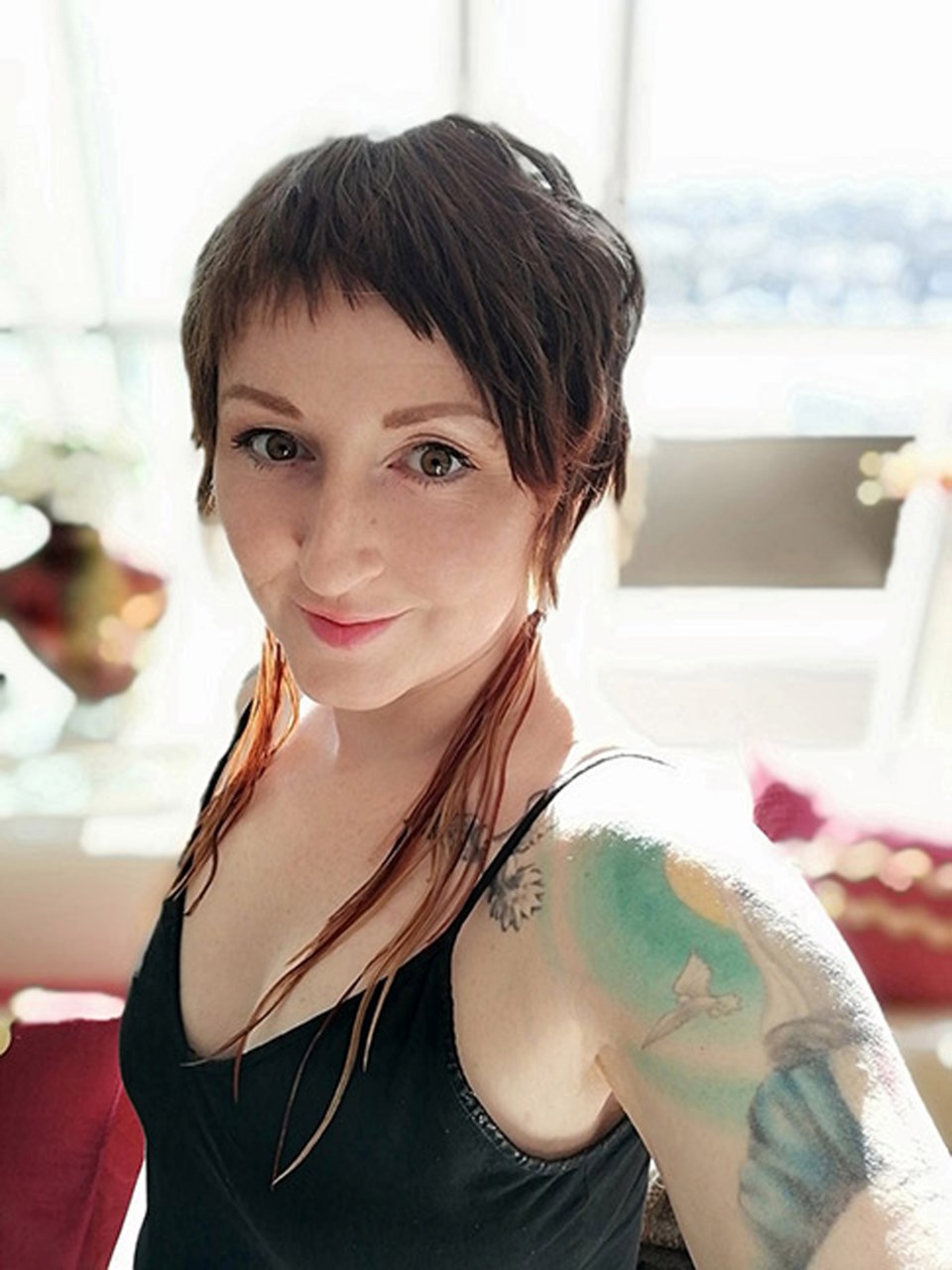Editor’s note: Jocelyn Loken is a personal friend of the writer.
ST. ALBERT — In August, Jocelyn Loken was told she had up to 12 months left to live.
With no immune system to protect her from infections or viruses, Loken has been cautiously lapping up all the simple pleasures of life while going for regular monthly treatments for leukemia.
She hoped to spend her last few precious days dancing to live music shows, consuming tasty morsels and good drinks with friends and family and going on mini road trips – anything her extrovert heart pleased.
But then COVID-19 happened, and aside from weekly trips to Edmonton for blood transfusions, Loken is confined to her home with her husband and dogs. With a very low white blood count, Loken said she would not “stand a chance” against COVID-19.
“I feel very cheated,” she said.
“I'm afraid that if I'm infected, I won't be able to die with my friends and family around me, hugging me and holding my hand,” Loken said. “I don't want to live in isolation, but I especially don't want to die in isolation.” Alberta hospitals currently limit the number of visitors patients can have to one healthy person at a time.
Loken cannot even do regular things, like go to the grocery store, for fear of coming into contact with someone who has COVID-19. Monthly trips from her Athabasca home to Edmonton for treatment have become a lot more complicated, with her having to scrounge her contacts for an empty home to stay in over the five-day period of her treatment.
People across Canada with compromised immune systems have been pleading for their fellow Canadians to take health guidelines seriously, so they have the best shot at survival. Alberta chief medical examiner Deena Hinshaw has repeatedly asked people to stay home as much as possible, to stop the spread to our most vulnerable populations.
There are social distancing measures in place across the province and in St. Albert for everyone's protection.
In addition to the elderly and people with lung and heart conditions, people like Loken who are immunocompromised are most at risk of dying due to COVID-19.
According to the CDC, many conditions can cause a person to be immunocompromised, including cancer treatment, smoking, bone marrow transplants, immune deficiencies, poorly controlled HIV or AIDS and prolonged use of corticosteroids.
Onoway resident Sheri Tourangeau has Lupus and said the thought of contracting COVID-19 is scary, knowing her immune system would not be capable of fighting the virus.
“It is a life and death thing for us,” Tourangeau said.
She does not have family in the area, so has had to brave the grocery store for supplies. Armed with hand sanitizer and a face mask, with nerves high, she was very aware of proximity to others and what she touched.
Tourangeau has a message for those who do not take COVID-19 seriously:
“Even though they may think that it might not happen to them, I wish they would just take a side of caution and just proceed to do the isolation anyways. Even if they don't really 100 per cent believe in it,” she said. “People with our immunities and the seniors, we've got to rely on these people to stay healthy and not give it to us.”
At first, when Loken heard about COVID-19 she thought it would be over in two weeks, and then she would be able to go out and enjoy wiener roasts and beers around a campfire with friends.
But as events have developed, Loken said the virus became “pretty terrifying” and she does not see an end in sight.
Loken said it makes her “furious at how selfish” people are who do not follow physical distancing and self-isolation guidelines, and that if everyone did so the pandemic would “be over a lot quicker.”
“It’s not about you. It’s about everyone,” she said. “I guarantee you, somebody that you know is immunocompromised, and it's not always obvious.”
Both Tourangeau and Loken worry the health system could get so bogged down due to COVID-19 that they will not be able to get the support they need, should they require a hospital visit.



